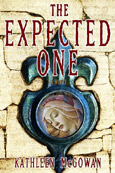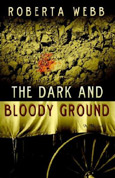Posted: 7/06/07
|
| Miller Heights Church in Belton held a groundbreaking ceremony to mark the beginning of the first phase of the church’s multiphase building program. The nearly 4,000-square-foot administrative building will house offices, a library, restrooms and a greeting area. Participating in the ceremony were trustees Les Connally, Buddy Peschel and Jimmy Parker; building committee members Mary Connally, Jeff Levi and Pastor Bill Adams; and the construction and design team of Charlie Cox, Sam Blount and Larry Neal. |
Around the State
• Paisano Baptist Encampment will hold its 87th general encampment July 22-27. Morning worship will be held at 11 a.m. and evening worship at 8 p.m. Fellowship begins in the dining shed at 6 p.m., and choir practice starts at 7 p.m. Steve Wells, pastor of South Main Church in Houston, and Dennis Wiles, pastor of First Church in Arlington, will alternate preaching duties. Todd Still, a Truett Seminary professor, will be the Bible study leader. For more information, see www.paisanoencampment. org.
• Baptist Mission Centers has opened its newest facility. The Houston facility, named in honor of missionary Mildred McWhorter, will house up to 36 missionaries and will provide additional office space and parking for staff volunteers.
• The University of Mary Hardin-Baylor played host to first seminar on Academic Leadership in Baptist Universities. Leaders from each of the eight Texas Baptist universities interacted with a panel of national leaders on Christian higher education administration. The event was sponsored by the Center for Ministry Effectiveness and Educational Leadership at Baylor University and the Baptist General Convention of Texas.
• Howard Payne University has announced faculty promotions and awarded service pins in recognition of years of service. Mike Daub, accounting, and Tonya Horner, mathematics, both have achieved the rank of associate professor. Bobbie Price, administrative assistant to the registrar, received a pin marking her 35 years of service. Also recognized were Chuck Boland, Ann Smith and Beth Willingham, 25 years; Glen Hopp, Betty Lancaster and Sharon Riker, 20 years; Cherie Dail, Amy Dodson, Bill Fishback, Mary Hill, Wade Kinnin, Les Plagens and Groner Pitts, 15 years; and Bobby Anderson, Curly Cox, Marcie Drew, Millard Kimery, Dag Sewell, Vicki Vaughn and Terrie Wells, 10 years.
• Joni Irwin of San Angelo has received her master of arts in educational leadership from Golden Gate Theological Seminary.
• Keith Tekell of Beaumont has been endorsed as a hospital chaplain by the Cooperative Baptist Fellowship.
• Houston Baptist University has hired David Shuster to lead its golf program. HBU will begin women’s golf this fall, and men’s golf will follow in the fall of 2008.
• San Marcos Baptist Academy’s history department is the beneficiary of a gift of audio-visual equipment given by former SMA student Pat Price. His gift has outfitted two classrooms with a multimedia cart complete with an LCD projector, DVD player and speakers. Two sets of social studies maps also were included in the donation.
Anniversaries
• Jay Fleming, 10th, as pastor of First Church in Karnes City, May 11.
• Ron Segers, 25th, as pastor of Victory Church in Marshall, June 25.
• Jimmy Tarrant, 20th, as pastor of First Church in Van Alstyne, June 21.
• Lowell Howard, 50th in ministry, June 24. He is pastor of Antioch Church in Bells.
• Larry Freeman, 10th, as pastor of Caribbean Church in Corpus Christi, June 26.
• Remigio Caballero, 10th, as pastor of Iglesia Nueva Esperanza in Corpus Christi.
• Sam Garrett, 15th, as pastor of First Church of Oakridge in Denison, July 5.
• Lamar Church in Beaumont, 60th, July 29. Steve Ford, who was ordained at the church, will preach in the morning service. A covered-dish luncheon and a look back at the church’s history will follow. Warren Wargo is pastor.
• Doole Church in Doole, 95th, Aug. 5. The worship service at 9:30 a.m. will incorporate the history of the church and participation by former pastors and members. A catered lunch will follow. Reservations for the lunch can be made until July 25 by sending an e-mail to pbrankin@verizon.net. Members unable to attend are asked to share a memory. Bob Gauer is pastor.
• First Church in Electra, 100th, Aug. 5. The celebration will begin at 9 a.m. with a time of fellowship. The worship service will begin at 10:45 a.m., with several former pastors and ministers expected to speak. A meal will follow. Paul Winegeart is pastor.
• Calvary Church in Bay City, 60th, Aug. 18-19. Former staff members Grayson Glass, Jeff Klutz and Aubrey Spears will speak. Chester Sassman is pastor.
Retiring
• Bill Chamblee, as minister of recreation at First Church in Denton, Aug. 15. He has served the church 35 years. A reception will be held in his honor from 3 p.m. to 6 p.m. Aug. 19. A brief program of thanks will be held at 4 p.m.
Deaths
• Jase Jones, 93, June 23 in Abilene. He was an Army chaplain in Europe during World War II, remaining in the Reserves until 1973 when he retired with the rank of colonel. After the war he attended Southwestern Seminary, and while completing his studies, he was pastor of churches in Fort Worth, Mansfield and Montague. In 1957, he was appointed by the Home Mission Board of the Southern Baptist Convention to the Department of Jewish Evangelism, which later became a part of the Department of Interfaith Witness. From 1957 until 1962, he was based in Dallas, and his work was jointly supported by the Baptist General Convention of Texas, Dallas Association and Tarrant Association. In 1962, he was transferred to Kansas City, Mo., where he stayed until 1974, when he returned to Texas, moving to Marble Falls. He retired in 1978, but stayed active as a consultant. He also was instrumental in founding the T.B. Maston Christian Ethics Foundation, named for his mentor and friend. He was chairman of the foundation 13 years. In 1992, at age 79, he went to Golden Gate Seminary as a visiting adjunct professor of Christian ethics, but stayed only one semester due to his wife’s declining health. He was preceded in death by his wife, Vivian, and sister, Beulah Geren. He is survived by his daughter, Patsy McCown; son, Bill; four grandchildren; and two great-grandchildren.
• Martha Gilmore, 71, June 24 in Dallas. In 1977, she was the first woman in Dallas, and the fourth in Texas to be ordained by a Southern Baptist church. She was ordained by Cliff Temple Church in Dallas so that she could serve as a hospital and jail chaplain. She later joined the United Methodist Church, and served on two Methodist church staffs. She is survived by her husband, Jerry; sons, Daniel and Charles; daughter, Susan Moore; and seven grandchildren.
• Sybil Armes, 93, June 29 in Dallas. An author and musician, she was known in Texas Baptist circles for her poems published in the Baptist Standard over a 40-year period. She wrote four books of religious poetry as well as hundreds of devotional poems for various church and denominational publications. She also wrote two books of religious meditations. A graduate of the Baylor College for Women, now the University of Mary Hardin-Baylor, she became a schoolteacher and counted future Dallas Cowboy coach Tom Landry as one of her students. Her husband, Woodson, taught at Baylor University and then was a pastor 26 years, leading the congregations at Seventh & James Church in Waco, Polytechnic Church in Fort Worth and First Church in El Paso. She was the 1961 UMHB convocation speaker, and received an honorary doctorate of letters. She was a trustee of the school from 1972 until 1981. In 1976, she was named the school’s outstanding alumni. In 1987, she and her husband were honored with the Texas Baptist Elder Statesman Award. She was preceded in death by her husband of 61 years in 1999. She is survived by her sons, David and Paul; daughter, Nancy LeCroy; and two granddaughters.
Events
• Paul Powell will preach at 10:55 a.m. and 6 p.m. at First Church in Ropesville July 15. A reception will follow the evening service. Kyle Morton is pastor.
Revival
• Pawnee Church, Pawnee; July 22-25; evangelist Paul Cherry; interim pastor, Tommy Ingle.
News of religion, faith, missions, Bible study and Christian ministry among Baptist churches, in Texas, the BGCT, the nation and around the world.



